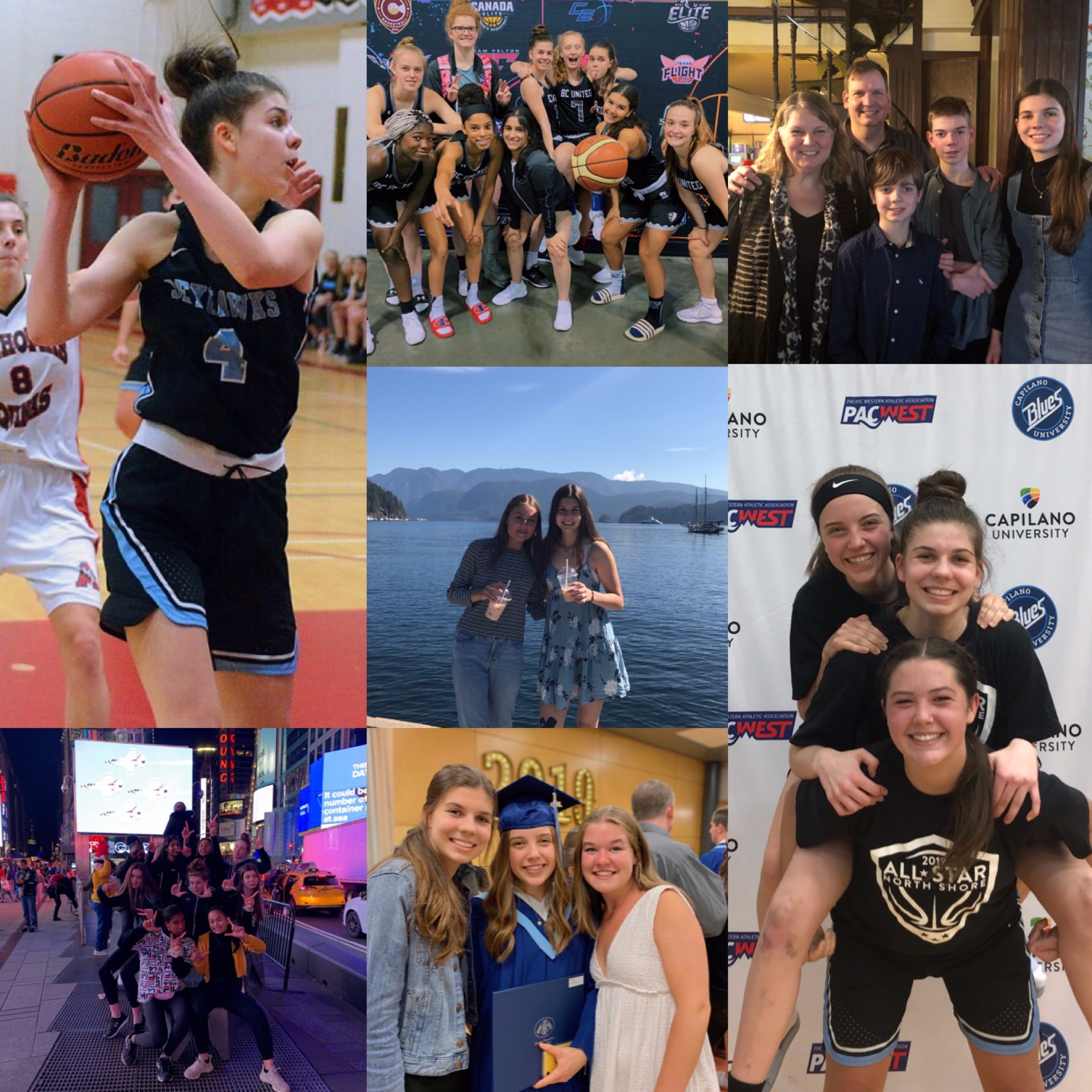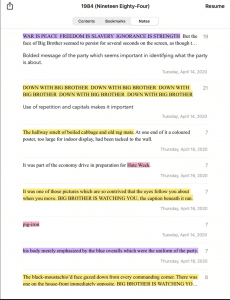Earlier in the school year, our class did a project on significance, focusing on the driving question, “What makes an event significant?”. Specifically looking at historical significance which follows criteria under these categories:
Importance: Who were impacted by the event at the time? Have people been affected by the event? Why was it so important to them? How were people’s lives affected?
Profundity: This refers to how deeply people were impacted by the event. Was the event superficial? Or deeply affecting? How were people’s lives affected?
Quantity: Did the event affect many, everyone, just a few?
Durability: How long were the people affected by the event? Was the event lasting or only temporary?
Relevance: This refers to the extent to which the event has contributed to historical understanding. Is the event relevant to our understanding of the past and/or present? Does the event have significance to us?
Now only a couple months after completing this project, we are living through a global pandemic, COVID-19. An event that is undoubtedly going down in the history books as significant. During this time in isolation, our class has been studying how dystopias help us understand what’s happening in our current situation.
Throughout this blog post, I’m going to be taking you through my learning of how significant this pandemic is on our society and the future.
This is the digital media art I created using the word significance and photos that represent COVID-19. Each picture represents a different part of the pandemic, including social distancing, the news, the spears of the virus etc.
To start off the unit, we learned about what utopias and dystopias are. First, we focused on utopias by splitting into groups and created our very own ideal society. This was a fun way to start the unit and understand that utopias encompass an ideal “perfect” society.
When given this assignment, it made me think of an experience I had doing an activity with a similar objective. When I was 11, I went to an international camp centred around diversity, and one of the activities that I remember most vividly was about creating an “ideal society.” Although I don’t remember all the details of the event, it was one that stuck with me from the camp as it showed that a person’s idea of a “perfect society” is ingrained into their head even from a young age. All of which stem from your world view and ideology.
To understand dystopias, we looked at dystopian literature. In specific, we were assigned one of four books, including Station 11, Handmaid’s Tale, World War Z and 1984. I read 1984 alongside with my group members Parker and Calum. 1984 was written by George Orwell in 1949. What’s pretty neat is my mum read also read the book when she was in high school in 1984, and now in grade 12, I read the book.
When beginning to read 1984, it was a lot different from what I expected, specifically the author’s style of writing and the fact that the book didn’t end with an ending that felt rewarding to the readers. It’s based around the whole idea that “big brother is watching you.” Throughout the book’s entirety, we see the impact of a totalitarian government and the power of technology.
Each week we would have a group discussion during one of our two weekly class Zoom calls. This was where we could discuss the section of the book we read, including characters, notable quotes and interesting connections to our own lives or other literature we’ve learned. What was great is during our discussion, we each brought different connections to the table, which lead to long in-depth discussion. The book discussion was one of my favourite parts of the unit, as I enjoy expressing my opinion within a discussion format.
During this reading, we had to highlight and take notes for specific parts that we thought were important and/or connected to our current situation. Usually, I don’t like taking notes while reading as it distracts me from the reading; however, this time, I found it really helpful as I was able to look back and pull evidence form my notes for discussing and writing assignments.
While also reading, taking notes, and having discussions with our peers, we wrote weekly dystopian journals where we had to connect our reading to current events. Although I always find it challenging to write connection pieces, I really enjoyed writing these journals as I allowed me to learn more about COVID-19 from apolitical, societal and security perspectives. My first journal was about the ‘Reality Control’ in 1984 connected to Trump, giving Americans a false sense of hope about COVID-19. My second journal was about the ‘thought police,’ which relates to people telling on others for breaking the COVID-19 rules. My third and final journal was about the party’s statement “freedom is slavery” and its connection to the stay at home order. If you would like to read my journals, I’ve included them down below.
Who knew today we would be living a moment in history as the entire world suffers through the global pandemic of COVID-19. With over 2 million confirmed cases and almost 200,000 deaths, the universal goal is to flatten the curve and decrease the consequences of the virus on our society. While many countries are doing their part by enforcing self-isolation and social distancing, in the United States, there is by far the most cases in the world. Even though these numbers seemly keep increasing, according to Trump, the number of new cases is declining, and it's time to "open up America again" (Trump). In comparison to the health officials who would like to be overly prepared, Trump has time and time again has "underestimated the threat" (Washington Post). In correlation, George Orwell's dystopian novel 1984 shares similar attributes in terms of security and the distribution of information. Within the first section fo the book, we learn from Wilson's perspective the life of people within the totalitarian government of Oceania. Wilson's Wilson's job was to "rectify the original figures to make them agree with the later ones" (chapter 4), making them adhere to the Big Brother's Ideology. During one instance, the chocolate rations were decreased from 30 grams to 20 grams. Following the announcement was made regarding the quotas decreasing soon after a voice on the "telescreen" revealed a demonstration to "thank big brother for increasing the chocolate rations to 20 grams a week" (chapter 5). "Reality Control" is what Ingsoc called the shuffling of statistics and event historic records gives a distorted perspective of the truth. Within this dystopia, information was changed to the extreme to adhere to the party's views from children's books, films and posters to sound-tracks. Although the United States doesn't literally change the numbers of cases, by Donald Trump telling people that the number of new cases in American is decreasing to the point where the United States can return to normal gives people a false sense of reassurance and puts more people at risk of getting the virus.
As a final element of this unit, we were tasked with working as a group to answer the driving question, ‘How do literary dystopias help us understand what is happening now?’ My group decided to create our take on the Big Brother Posters in the book based on the INGSOC party’s slogan “War is Peace; Freedom is Slavery; Ignorance is Strength.”
Here are the posters we created:
I created the freedom is slavery poster, which I connected to how following the self-isolation and social distance rules will lead to our society returning to the normal freedom we had before the virus. By creating these posters influenced by the posters in 1984, we were able to visually show how the book relates to our current situation.
Once we created the posters, we then presented them to the class through Zoom and screen sharing. Although this is an entirely different way of presenting, I’m glad we were able to show our learning to our teachers and peers. In many of my other classes, once learning at home began to take place, many of my other teachers and their classes weren’t fully equipped to transition learning online. Within the PLP, I have enjoyed being able to continue to learn and improve throughout the last couple of months of grade 12.
Throughout this unit, I was able to connect and reflect on how dystopian literature relates to the global pandemic and the society in which we live. Threw these connections, I was able to gain a deeper understanding of why people are reacting the way they are to the pandemic and what the world is doing to ‘flatten the curve.’






